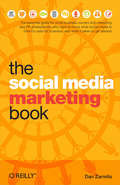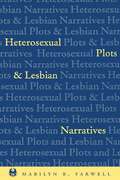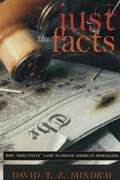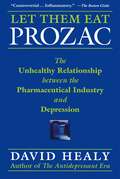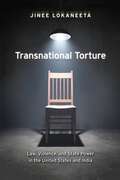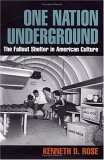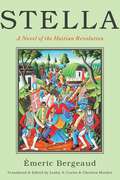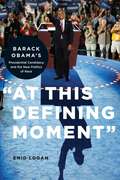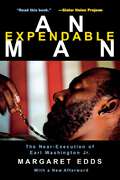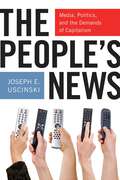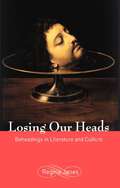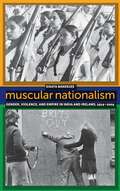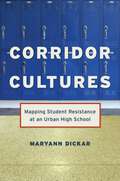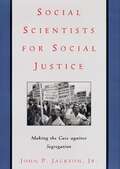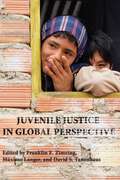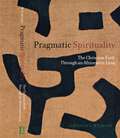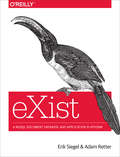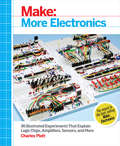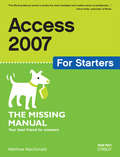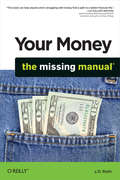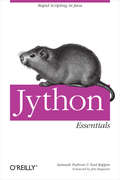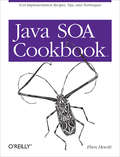- Table View
- List View
The Social Media Marketing Book
by Dan ZarrellaAre you looking to take advantage of social media for your business or organization? With easy-to-understand introductions to blogging, forums, opinion and review sites, and social networks such as Twitter, Facebook, and LinkedIn, this book will help you choose the best -- and avoid the worst -- of the social web's unique marketing opportunities. The Social Media Marketing Book guides you through the maze of communities, platforms, and social media tools so you can decide which ones to use, and how to use them most effectively. With an objective approach and clear, straightforward language, Dan Zarrella, aka "The Social Media & Marketing Scientist," shows you how to plan and implement campaigns intelligently, and then measure results and track return on investment. Whether you're a seasoned pro or new to the social web, this book will take you beyond the jargon to social media marketing mastery.Make sense of this complicated environment with the help of screenshots, graphs, and visual explanationsUnderstand the history and culture of each social media type, including features, functionality, and protocolsGet clear-cut explanations of the methods you need to trigger viral marketing successesChoose the technologies and marketing tactics most relevant to your campaign goalsLearn how to set specific goals for your campaigns and evaluate them according to key performance indicatorsPraise for The Social Media Marketing Book: "Let Zarrella take you to social-media marketing school. You'll learn more from reading this book than a month of research on the Internet."--Guy Kawasaki, co-founder of Alltop.com"If I could be any other person for a day, it would be Dan Zarella. Either him or Brad Pitt. But Dan's smarter. This book is why I say that."--Chris Brogan, President of New Marketing Labs "This book demonstrates a beginning to the endless possibilities of the Social Web."-- Brian Solis, publisher of leading marketing blog PR 2.0
The Thirteenth Amendment and American Freedom: A Legal History
by Alexander TsesisIn this narrative history and contextual analysis of the Thirteenth Amendment, slavery and freedom take center stage. Alexander Tsesis demonstrates how entrenched slavery was in pre-Civil War America, how central it was to the political events that resulted in the Civil War, and how it was the driving force that led to the adoption of an amendment that ultimately provided a substantive assurance of freedom for all American citizens. The story of how Supreme Court justices have interpreted the Thirteenth Amendment, first through racist lenses after Reconstruction and later influenced by the modern civil rights movement, provides insight into the tremendous impact the Thirteenth Amendment has had on the Constitution and American culture. Importantly, Tsesis also explains why the Thirteenth Amendment is essential to contemporary America, offering fresh analysis on the role the Amendment has played regarding civil rights legislation and personal liberty case decisions, and an original explanation of the substantive guarantees of freedom for today's society that the Reconstruction Congress envisioned over a century ago.
From Congregation Town to Industrial City: Culture and Social Change in a Southern Community (The American Social Experience #3)
by Michael ShirleyIn 1835, Winston and Salem was a well-ordered, bucolic, and attractive North Carolina town. A visitor could walk up Main Street from the village square and get a sense of the quiet Moravian community that had settled here. Yet, over the next half-century, this idyllic village was to experience dramatic changes. The Industrial Revolution calls forth images of great factories, mills, and machinery; yet, the character of the Industrial Revolution went beyond mere changes in modes of production. It meant the radical transformation of economic, social, and political institutions, and the emergence of a new mindset that brought about new ways of thinking and acting. Here is the illuminating story of Winston-Salem, a community of artisans and small farmers united, as members of a religious congregation, by a single vision of life. Transformed in just a few decades from an agricultural region into the home of the smokestacks and office towers of the R.J. Reynolds Tobacco Company and the Wachovia Bank and Trust Company, the Moravian community at Salem offers an illuminating illustration of the changes that swept Southern society in the nineteenth century and the concomitant development in these communities of a new ethos. Providing a rich wealth of information about the Winston-Salem community specifically, From Congregation Town to Industrial City also significantly broadens our understanding of how wholesale changes in the nineteenth century South redefined the meaning and experience of community. For, by the end of the century, community had gained an entirely new meaning, namely as a forum in which competing individuals pursued private opportunities and interests.
Heterosexual Plots and Lesbian Narratives (The Cutting Edge: Lesbian Life and Literature Series)
by Marilyn FarwellWhat is lesbian literature? Must it contain overtly lesbian characters, and portray them in a positive light? Must the author be overtly (or covertly) lesbian? Does there have to be a lesbian theme and must it be politically acceptable? Marilyn Farwell here examines the work of such writers as Adrienne Rich, Marion Zimmer Bradley, Jeanette Winterson, Gloria Naylor, and Marilyn Hacker to address these questions. Dividing their writings into two genres--the romantic story and the heroic, or quest, story, Farwell addresses some of the most problematic issues at the intersection of literature, sex, gender, and postmodernism. Illustrating how the generational conflict between the lesbian- feminists of twenty years ago and the queer theorists of today stokes the critical fires of contemporary lesbian and literary theory, Heterosexual Plots and Lesbian Narratives concludes by arguing for a broad and generous definition of lesbian writing.
Just the Facts: How "Objectivity" Came to Define American Journalism
by David T.Z. MindichDraws a history of journalism's most respected tenet—objectivityIf American journalism were a religion, as it has been called, then its supreme deity would be "objectivity." The high priests of the profession worship the concept, while the iconoclasts of advocacy journalism, new journalism, and cyberjournalism consider objectivity a golden calf. Meanwhile, a groundswell of tabloids and talk shows and the increasing infringement of market concerns make a renewed discussion of the validity, possibility, and aim of objectivity a crucial pursuit. Despite its position as the orbital sun of journalistic ethics, objectivity—until now—has had no historian. David T. Z. Mindich reaches back to the nineteenth century to recover the lost history and meaning of this central tenet of American journalism. His book draws on high profile cases, showing the degree to which journalism and its evolving commitment to objectivity altered–and in some cases limited—the public's understanding of events and issues. Mindich devotes each chapter to a particular component of this ethic–detachment, nonpartisanship, the inverted pyramid style, facticity, and balance. Through this combination of history and cultural criticism, Mindich provides a profound meditation on the structure, promise, and limits of objectivity in the age of cybermedia.
Let Them Eat Prozac: The Unhealthy Relationship Between the Pharmaceutical Industry and Depression
by David HealyA psychiatrist provides an insider account on the controversial use of selective serotonin reuptake inhibitors (SSRIs)Prozac. Paxil. Zoloft. Turn on your television and you are likely to see a commercial for one of the many selective serotonin reuptake inhibitors (SSRIs) on the market. We hear a lot about them, but do we really understand how these drugs work and what risks are involved for anyone who uses them?Let Them Eat Prozac explores the history of SSRIs—from their early development to their latest marketing campaigns—and the controversies that surround them. Initially, they seemed like wonder drugs for those with mild to moderate depression. When Prozac was released in the late 1980s, David Healy was among the psychiatrists who prescribed it. But he soon observed that some of these patients became agitated and even attempted suicide. Could the new wonder drug actually be making patients worse?Healy draws on his own research and expertise to demonstrate the potential hazards associated with these drugs. He intersperses case histories with insider accounts of the research leading to the development and approval of SSRIs as a treatment for depression. Let Them Eat Prozac clearly demonstrates that the problems go much deeper than a side-effect of a particular drug. The pharmaceutical industry would like us to believe that SSRIs can safely treat depression, anxiety, and a host of other mental problems. But, as Let Them Eat Prozac reveals, this “cure” may be worse than the disease.
Transnational Torture: Law, Violence, and State Power in the United States and India
by Jinee Lokaneeta"Transnational Torture by Jinee Lokaneeta reviewed with Prachi Patankar" on the blog Kafila.Evidence of torture at Abu Ghraib prison in Iraq and harsh interrogation techniques at Guantánamo Bay beg the question: has the “war on terror” forced liberal democracies to rethink their policies and laws against torture? Transnational Torture focuses on the legal and political discourses on torture in India and the United States—two common-law based constitutional democracies—to theorize the relationship between law, violence, and state power in liberal democracies.Analyzing about one hundred landmark Supreme Court cases on torture in India and the United States, memos and popular imagery of torture, Jinee Lokaneeta compellingly demonstrates that even before recent debates on the use of torture in the war on terror, the laws of interrogation were much more ambivalent about the infliction of excess pain and suffering than most political and legal theorists have acknowledged. Rather than viewing the recent policies on interrogation as anomalous or exceptional, Lokaneeta effectively argues that efforts to accommodate excess violence—a constantly negotiated process—are long standing features of routine interrogations in both the United States and India, concluding that the infliction of excess violence is more central to democratic governance than is acknowledged in western jurisprudence.
One Nation Underground: The Fallout Shelter in American Culture
by Kenneth D. RoseWhy some Americans built fallout shelters—an exploration America's Cold War experienceFor the half-century duration of the Cold War, the fallout shelter was a curiously American preoccupation. Triggered in 1961 by a hawkish speech by John F. Kennedy, the fallout shelter controversy—"to dig or not to dig," as Business Week put it at the time—forced many Americans to grapple with deeply disturbing dilemmas that went to the very heart of their self-image about what it meant to be an American, an upstanding citizen, and a moral human being. Given the much-touted nuclear threat throughout the 1960s and the fact that 4 out of 5 Americans expressed a preference for nuclear war over living under communism, what's perhaps most striking is how few American actually built backyard shelters. Tracing the ways in which the fallout shelter became an icon of popular culture, Kenneth D. Rose also investigates the troubling issues the shelters raised: Would a post-war world even be worth living in? Would shelter construction send the Soviets a message of national resolve, or rather encourage political and military leaders to think in terms of a "winnable" war?Investigating the role of schools, television, government bureaucracies, civil defense, and literature, and rich in fascinating detail—including a detailed tour of the vast fallout shelter in Greenbriar, Virginia, built to harbor the entire United States Congress in the event of nuclear armageddon—One Nation, Underground goes to the very heart of America's Cold War experience.
Stella: A Novel of the Haitian Revolution (America and the Long 19th Century #17)
by Emeric BergeaudStella, first published in 1859, is an imaginative retelling of Haiti’s fight for independence from slavery and French colonialism. Set during the years of the Haitian Revolution (1791-1804), Stella tells the story of two brothers, Romulus and Remus, who help transform their homeland from the French colony of Saint-Domingue to the independent republic of Haiti. Inspired by the sacrifice of their African mother Marie and Stella, the spirit of Liberty, Romulus and Remus must learn to work together to found a new country based on the principles of freedom and equality. This new translation and critical edition of Émeric Bergeaud’s allegorical novel makes Stella available to English-speaking audiences for the first time. Considered the first novel written by a Haitian, Stella tells of the devastation and deprivation that colonialism and slavery wrought upon Bergeaud’s homeland. Unique among nineteenth-century accounts, Stella gives a pro-Haitian version of the Haitian Revolution, a bloody but just struggle that emancipated a people, and it charges future generations with remembering the sacrifices and glory of their victory. Bergeaud's novel demonstrates that the Haitians—not the French—are the true inheritors of the French Revolution, and that Haiti is the realization of its republican ideals. At a time in which Haitian Studies is becoming increasingly important within the English-speaking world, this edition calls attention to the rich though under-examined world of nineteenth-century Haiti.
“At This Defining Moment”: Barack Obama’s Presidential Candidacy and the New Politics of Race
by Enid Lynette LoganIn January 2009, Barack Obama became the 44th president of the United States. In the weeks and months following the election, as in those that preceded it, countless social observers from across the ideological spectrum commented upon the cultural, social and political significance of “the Obama phenomenon.” In “At this Defining Moment,” Enid Logan provides a nuanced analysis framed by innovative theoretical insights to explore how Barack Obama’s presidential candidacy both reflected and shaped the dynamics of race in the contemporary United States. Using the 2008 election as a case study of U.S. race relations, and based on a wealth of empirical data that includes an analysis of over 1,500 newspaper articles, blog postings, and other forms of public speech collected over a 3 year period, Logan claims that while race played a central role in the 2008 election, it was in several respects different from the past. Logan ultimately concludes that while the selection of an individual African American man as president does not mean that racism is dead in the contemporary United States, we must also think creatively and expansively about what the election does mean for the nation and for the evolving contours of race in the 21st century.
An Expendable Man: The Near-Execution of Earl Washington, Jr.
by Margaret EddsHow is it possible for an innocent man to come within nine days of execution? An Expendable Man answers that question through detailed analysis of the case of Earl Washington Jr., a mentally retarded, black farm hand who was convicted of the 1983 rape and murder of a 19-year-old mother of three in Culpeper, Virginia. He spent almost 18 years in Virginia prisons—9 1/2 of them on death row—for a murder he did not commit.This book reveals the relative ease with which individuals who live at society's margins can be wrongfully convicted, and the extraordinary difficulty of correcting such a wrong once it occurs.Washington was eventually freed in February 2001 not because of the legal and judicial systems, but in spite of them. While DNA testing was central to his eventual pardon, such tests would never have occurred without an unusually talented and committed legal team and without a series of incidents that are best described as pure luck.Margaret Edds makes the chilling argument that some other “expendable men” almost certainly have been less fortunate than Washington. This, she writes, is “the secret, shameful underbelly” of America's retention of capital punishment. Such wrongful executions may not happen often, but anyone who doubts that innocent people have been executed in the United States should remember the remarkable series of events necessary to save Earl Washington Jr. from such a fate.
No Undocumented Child Left Behind: Plyler v. Doe and the Education of Undocumented Schoolchildren (Citizenship and Migration in the Americas #3)
by Michael A. OlivasThe 1982 U. S. Supreme Court case of Plyler v. Doe, which made it possible for undocumented children to enroll in Texas public schools, was a watershed moment for immigrant rights in the United States. The Court struck down both a state statute denying funding for education to undocumented children and a municipal school district's attempt to charge an annual $1,000 tuition fee for each undocumented student to compensate for the lost state funding. Yet while this case has not returned to the Supreme Court, it is frequently contested at the state and local level.In No Undocumented Child Left Behind, Michael A. Olivas tells a fascinating history of the landmark case, examining how, 30 years later, Plyler v. Doe continues to suffer from implementation issues and requires additional litigation and vigilance to enforce the ruling. He takes a comprehensive look at the legal regime it established regarding the education of undocumented school children, moves up through its implementation, including direct and indirect attacks on it, and closes with the ongoing, highly charged debates over the Development, Relief, and Education for Minors (DREAM) Act, which aims to give conditional citizenship to undocumented college students who graduated from US high schools and have been in the country for at least five years. Listen to Michael Olivas on WYPF 88.1 FM, as he takes a look back 30 years to the Supreme Court case that made it possible for undocumented children to enroll in public schools and the highly-charged political and legal battles that have ensued.
The People's News: Media, Politics, and the Demands of Capitalism
by Joseph E. UscinskiUncovers the surprising cause behind the recent rise of fake newsIn an ideal world, journalists act selflessly and in the public interest regardless of the financial consequences. However, in reality, news outlets no longer provide the most important and consequential stories to audiences; instead, news producers adjust news content in response to ratings, audience demographics, and opinion polls. While such criticisms of the news media are widely shared, few can agree on the causes of poor news quality. The People’s News argues that the incentives in the American free market drive news outlets to report news that meets audience demands, rather than democratic ideals. In short, audiences’ opinions drive the content that so often passes off as “the news.”The People’s News looks at news not as a type of media but instead as a commodity bought and sold on the market, comparing unique measures of news content to survey data from a wide variety of sources. Joseph Uscinski’s rigorous analysis shows news firms report certain issues over others—not because audiences need to know them, but rather, because of market demands. Uscinski also demonstrates that the influence of market demands also affects the business of news, prohibiting journalists from exercising independent judgment and determining the structure of entire news markets as well as firm branding.Ultimately, the results of this book indicate profit-motives often trump journalistic and democratic values. The findings also suggest that the media actively responds to audiences, thus giving the public control over their own information environment. Uniting the study of media effects and media content, The People’s News presents a powerful challenge to our ideas of how free market media outlets meet our standards for impartiality and public service.
Losing Our Heads: Beheadings in Literature and Culture
by Regina JanesWhat is the fascination that decollation holds for us, as individuals and as a culture? Why does the idea make us laugh and the act make us close our eyes? Losing Our Heads explores in both artistic and cultural contexts the role of the chopped-off head. It asks why the practice of decapitation was once so widespread, why it has diminished—but not, as scenes from contemporary Iraq show, completely disappeared—and why we find it so peculiarly repulsive that we use it as a principal marker to separate ourselves from a more “barbaric”or “primitive” past?Although the topic is grim, Regina Janes’s treatment and conclusions are neither grisly nor gruesome, but continuously instructive about the ironies of humanity’s cultural nature. Bringing to bear an array of evidence, the book argues that the human ability to create meaning from the body motivates the practice of decapitation, its diminution, the impossibility of its extirpation, and its continuing fascination. Ranging from antiquity to the late nineteenth-century passion for Salomé and John the Baptist, and from the enlightenment to postcolonial Africa’s challenge to the severed head as sign of barbarism, Losing Our Heads opens new areas of investigation, enabling readers to understand the shock of decapitation and to see the value in moving past shock to analysis. Written with penetrating wit and featuring striking illustrations, it is sure to captivate anyone interested in his or her head.
Muscular Nationalism: Gender, Violence, and Empire in India and Ireland, 1914-2004 (Routledge Contemporary South Asia Ser.)
by Sikata BanerjeeA particular dark triumph of modern nationalism has been itsability to persuade citizens to sacrifice their lives for a political visionforged by emotional ties to a common identity. Both men and women can respond to nationalistic calls to fight thatportray muscular warriors defending their nation against an easily recognizableenemy. This “us versus them” mentality can be seen in sectarian violencebetween Hindus and Muslims, Tamils and Sinhalas, Serbs and Kosovars, andProtestants and Catholics. In MuscularNationalism, Sikata Banerjee takes a comparative look at Indiaand Ireland andthe relationship among gender, violence, and nationalism. Exploring key textsand events from 1914-2004, Banerjee explores how women negotiate “muscularnationalisms” as they seek to be recognized as legitimate nationalists andequal stakeholders in their national struggles. Banerjee argues that the gendered manner in which dominantnationalism has been imagined in most states in the world has had importantimplications for women’s lived experiences. Drawing on a specific intersection of gender and nationalism, shediscusses the manner in which women negotiate a political and social terraininfused with a masculinized dream of nation-building. India and Ireland—two states shaped by thelegacy of British imperialism and forced to deal with modern political/socialconflict centering on competing nationalisms—provide two provocative casestudies that illuminate the complex interaction between gender and nation.
Corridor Cultures: Mapping Student Resistance at an Urban School (Qualitative Studies in Psychology #15)
by Maryann DickarFor many students, the classroom is not the central focus of school. The school's corridors and doorways are areas largely given over to student control, and it is here that they negotiate their cultural identities and status among their peer groups. The flavor of this “corridor culture” tends to reflect the values and culture of the surrounding community.Based on participant observation in a racially segregated high school in New York City, Corridor Cultures examines the ways in which school spaces are culturally produced, offering insight into how urban students engage their schooling. Focusing on the tension between the student-dominated halls and the teacher-dominated classrooms and drawing on insights from critical geographers and anthropology, it provides new perspectives on the complex relationships between Black students and schools to better explain the persistence of urban school failure and to imagine ways of resolving the contradictions that undermine the educational prospects of too many of the nations' children.Dickar explores competing discourses about who students are, what the purpose of schooling should be, and what knowledge is valuable as they become spatialized in daily school life. This spatial analysis calls attention to the contradictions inherent in official school discourses and those generated by students and teachers more locally.By examining the form and substance of student/school engagement, Corridor Cultures argues for a more nuanced and broader framework that reads multiple forms of resistance and recognizes the ways students themselves are conflicted about schooling.
Social Scientists for Social Justice: Making the Case against Segregation (Critical America #85)
by John P. Jackson Jr.In one of the twentieth century's landmark Supreme Court cases, Brown v. Board of Education, social scientists such as Kenneth Clark helped to convince the Supreme Court Justices of the debilitating psychological effects of racism and segregation. John P. Jackson, Jr., examines the well-known studies used in support of Brown, such as Clark’s famous “doll tests,” as well as decades of research on race which lead up to the case. Jackson reveals the struggles of social scientists in their effort to impact American law and policy on race and poverty and demonstrates that without these scientists, who brought their talents to bear on the most pressing issues of the day, we wouldn’t enjoy the legal protections against discrimination we may now take for granted. For anyone interested in the history and legacy of Brown v. Board of Education, this is an essential book.
Juvenile Justice in Global Perspective (Youth, Crime, and Justice #1)
by David S. Tanenhaus Franklin E. Zimring Máximo LangerAn unprecedented comparison of juvenile justice systems across the globe, Juvenile Justice in Global Perspective brings together original contributions from some of the world's leading voices.While American scholars may have extensive knowledge about other justice systems around the world and how adults are treated, juvenile justice systems and the plight of youth who break the law throughout the world is less often studied. This important volume fills a large gap in the study of juvenile justice by providing an unprecedented comparison of criminal justice and juvenile justice systems across the world, looking for points of comparison and policy variance that can lead to positive change in the United States. Distinguished criminology scholars Franklin Zimring, Máximo Langer, and David Tanenhaus, and the contributors cover countries from Western Europe to rising powers like China, India, and countries in Latin America. The book discusses important issues such as the relationship between political change and juvenile justice, the common labels used to unify juvenile systems in different regions and in different forms of government, the types of juvenile systems that exist and how they differ, and more. Furthermore, the book uses its data on criminal versus juvenile justice in a wide variety of nations to create a new explanation of why separate juvenile and criminal courts are felt to be necessary.
Pragmatic Spirituality: The Christian Faith through an Africentric Lens
by Gayraud S. WilmoreGayraud S. Wilmore, an internationally renowned scholar of the history of the African American church, is one of the founders of black theology and author of Black Religion and Black Radicalism. Pragmatic Spirituality brings together some of his most compelling writings to speak to continuing issues in African American Christianity and black theology. The volume makes available for the first time several of Wilmore's previously unpublished essays, including a new chapter on womanist theology written for this book. Each chapter has been thoroughly reviewed and where appropriate reworked for this volume in order to create a coherent work which reveals a consistent "pragmatic spirituality" in African and African American religious practice. This book presents a view of the Christian faith and life at variance with the quest for personal sanctity by emphasizing communal empowerment for humanization and justice. Pragmatic Spirituality incorporates some of the most engaging of Wilmore's voluminous writings to reinstate a persistent theme: that black or Africentric faith transposes itself from basically numinous and ecstatic elements in African and African diasporic religions to the immediate and practical work of healing and empowering the poor and marginalized. This book transcends a narrow Africentrism to call for a broad acquaintance with a historic motif in black faith that has to do with compassion, justice, equality, and the liberation of all people. This illuminating volume displays Wilmore's influence on the development of black theology for over fifty years, and introduces his work to a new generation of scholars.
eXist: A NoSQL Document Database and Application Platform
by Erik Siegel Adam RetterGet a head start with eXist, the open source NoSQL database and application development platform built entirely around XML technologies. With this hands-on guide, you’ll learn eXist from the ground up, from using this feature-rich database to work with millions of documents to building complex web applications that take advantage of eXist’s many extensions.If you’re familiar with XML—as a student, professor, publisher, or developer—you’ll find that eXist is ideal for all kinds of documents. This book shows you how to store, query, and search documents with XQuery and other XML technologies, and how to construct applications on top of the database with tools such as eXide and eXist’s built-in development environment.Manage both data-oriented and text-oriented markup documents securelyBuild a sample application that analyzes and searches Shakespeare’s playsGo inside the architecture and learn how eXist processes documentsLearn how to work with eXist’s internal development environmentChoose among various indexes, including a full-text index based on Apache LuceneDive into eXist’s APIs for integrating or interacting with the databaseExtend eXist by building your own Triggers, Scheduled Tasks, and XQuery extension modules
Make: Journey Deep Into the World of Logic Chips, Amplifiers, Sensors, and Randomicity
by Charles PlattWant to learn even more about electronics in a fun, hands-on way? If you finished the projects in Make: Electronics, or if you're already familiar with the material in that book, you're ready for Make: More Electronics. Right away, you'll start working on real projects, and you'll explore all the key components and essential principles through the book's collection of experiments. You'll build the circuits first, then learn the theory behind them!This book picks up where Make: Electronics left off: you'll work with components like comparators, light sensors, higher-level logic chips, multiplexers, shift registers, encoders, decoders, and magnetic sensors. You'll also learn about topics like audio amplification, randomicity, as well as positive and negative feedback. With step-by-step instructions, and hundreds of color photographs and illustrations, this book will help you use -- and understand -- intermediate to advanced electronics concepts and techniques.
Access 2007 for Starters: The Missing Manual
by Matthew MacDonaldThis fast-paced book teaches you the basics of Access 2007 so you can start using this popular database program right away. You'll learn how to work with Access' most useful features to design databases, maintain them, search for valuable nuggets of information, and build attractive forms for quick-and-easy data entry.The new Access is radically different from previous versions, but with this book, you'll breeze through the new interface and its timesaving features in no time with:Clear explanationsStep-by-step instructionsLots of illustrationsLarger typePlenty of friendly adviceIdeal for small businesses and households, Access runs on PCs and manages large stores information, including numbers, pages of text, and pictures -- everything from a list of family phone numbers to an enormous product catalog. Unfortunately, each new version of the program crammed in yet another set of features -- so many that even the pros don't know where to find them all. Access 2007 breaks the mold: Microsoft changed the user interface by designing a tabbed toolbar that makes features easy to locate. One thing that hasn't improved is Microsoft's documentation. Even if you find the features you need, you still may not know what to do with them. Access 2007 for Starters: The Missing Manual is the perfect primer for small businesses with no techie to turn to, as well as those who want to organize household and office information.
Your Money: The Missing Manual
by J. D. RothKeeping your financial house in order is more important than ever. But how do you deal with expenses, debt, taxes, and retirement without getting overwhelmed? This book points the way. It's filled with the kind of practical guidance and sound insights that makes J.D. Roth's GetRichSlowly.org a critically acclaimed source of personal-finance advice.You won't find any get-rich-quick schemes here, just sensible advice for getting the most from your money. Even if you have perfect credit and no debt, you'll learn ways to make your rosy financial situation even better.Get the info you need to make sensible decisions on saving, spending, and investingLearn the best ways to set and achieve financial goalsSet up a realistic budget framework and learn how to track expensesDiscover proven methods to help you eliminate debtUnderstand how to use credit wiselyWin big by making smart decisions on your home and other big-ticket itemsLearn how to get the most from your investments by avoiding rash decisionsDecide how -- and how much -- to save for retirement
Jython Essentials: Rapid Scripting in Java
by Samuele Pedroni Noel RappinJython is an implementation of the Python programming language written in 100% pure Java, so it runs under any compliant Java Virtual Machine. The secret to Jython's popularity lies in the combination of Java's librariesand tools with Python's rapid development capabilities. With Jython, you can write Python programs that integrate seamlessly with any Java code. And like Python, Jython can be used interactively, so you can get immediate results as you are programming.Jython Essentials provides a solid introduction to the Python language, offering a brief but thorough tour of the Python concepts you'll need to understand to use Jython effectively. The book makes frequent comparisonsbetween Python and Java, with special emphasis on the different object-oriented semantics of the two languages, so Java programmers can quickly get up to speed with Jython.Jython Essentials also covers the various ways in which Jython and Java can interact. For example, Jython code can create instances of pre-existing Java classes and call methods in those instances. You can write Jython classes that are direct subclasses of existing Java classesand use introspection to discern the capabilities of JavaBeans components. This book provides examples of using Jython with existing Java libraries, including the Swing GUI toolkit, the JDBC database API, the Servlet API, and various XML tools. And finally, the book shows howJython can be used as a scripting language within a Java program.With Jython Essentials, you have everything you need to start creating applications that mix the best of Python's interactivity and Java's robust libraries.
Java SOA Cookbook: SOA Implementation Recipes, Tips, and Techniques
by Eben HewittJava SOA Cookbook offers practical solutions and advice to programmers charged with implementing a service-oriented architecture (SOA) in their organization. Instead of providing another conceptual, high-level view of SOA, this cookbook shows you how to make SOA work. It's full of Java and XML code you can insert directly into your applications and recipes you can apply right away.The book focuses primarily on the use of free and open source Java Web Services technologies -- including Java SE 6 and Java EE 5 tools -- but you'll find tips for using commercially available tools as well. Java SOA Cookbook will help you:Construct XML vocabularies and data models appropriate to SOA applicationsBuild real-world web services using the latest Java standards, including JAX-WS 2.1 and JAX-RS 1.0 for RESTful web servicesIntegrate applications from popular service providers using SOAP, POX, and AtomCreate service orchestrations with complete coverage of the WS-BPEL (Business Process Execution Language) 2.0 standardImprove the reliability of SOAP-based services with specifications such as WS-Reliable MessagingDeal with governance, interoperability, and quality-of-service issuesThe recipes in Java SOA Cookbook will equip you with the knowledge you need to approach SOA as an integration challenge, not an obstacle.
